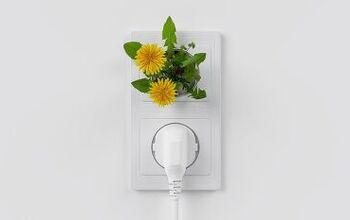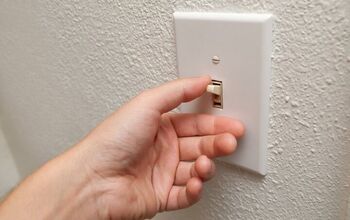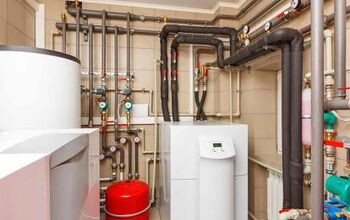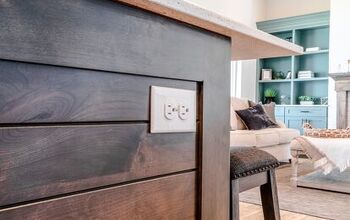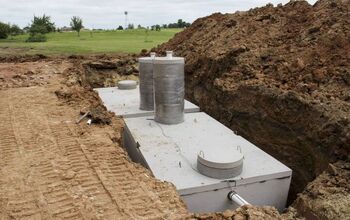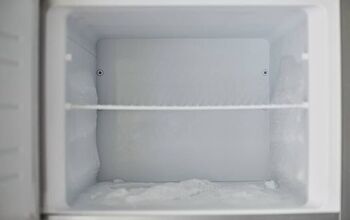Why Does My AC Filter Get Dirty So Fast?

Many people don’t think about their air filters until it’s time to change them. However, it can be confusing when you notice that your filter is dirtier than it should be. So, why does my AC filter get dirty so fast?
An AC filter can quickly get dirty if you live in a small home with many occupants. The filter can also get dirty sooner than usual if you don’t regularly dust the surfaces in your home. Another reason air filters can become dirty too fast is for homeowners who have pets, as the air filters can catch loose hair.
The worst-case scenario is that your air filter and ductwork are clogged with mold. Follow along as we explore why your AC filter gets dirty so fast and highlight solutions.
Why Is My AC Filter So Dirty?
Whether it be due to excessive dust or air duct problems, air filters can quickly get dirty for many reasons. Dirty air filters may look gross, but the consequences that accompany them are far worse. That’s because the contaminants in the air will recirculate throughout your house if the filter is clogged.
You may not see these contaminants in the air, but they can affect the indoor air quality of your home. Several factors can determine why your AC filter gets dirty so fast, such as:
1. You Have Pets
As much as we all love our pets, many people would agree that keeping up with loose hair can be a pain. Regularly cleaning up loose pet hair can help keep your house looking tidy, and it’s essential. However, there’s a good chance that at least some of the loose pet hair entered your HVAC system.
As your AC runs, hair will blow around your house, and some of it will settle on your countertops and furniture. Unfortunately, a lot of it will also enter your air ducts and air filter. Not only will this make your air filter dirty, but it will also reduce the airflow.
A clogged air filter can quickly take a toll on your HVAC system, as your AC must work much harder than usual. As a pet owner, you must inspect the air filter every 30 days to see what condition it’s in. Replace the filter every 90 days to keep up with the pet hair and ensure good airflow.
2. Air Duct Leaks
It’s easy to forget about the air ducts in your home, as you don’t typically see or think about them. However, they’re essential, as they transport warm and cool air throughout your home and deliver it to each room. Air ducts are prone to many problems, none of which can affect your air filter as much as ductwork leaks do.
Such leaks can expose your air filter to much more dirt, dust, and debris than you’re accustomed to seeing. Not only will this debris clog your air filter, but the remaining debris may spill back into your house. In many cases, homeowners don’t notice an air duct leak right away, as the ducts are well concealed.
Look out for excessive dust on the surfaces in your home and uneven temperatures between rooms. These are classic signs of an air duct leak, which can significantly increase your energy bills. If your air filter gets dirty so fast, you may want to schedule an air duct inspection.
3. Small House With Many Occupants
Each person who lives in your home ultimately contributes to the amount of dust and debris in the space. Naturally, this can become much harder to manage if you live in an apartment or a small house. The dust, loose hair, dead skin cells, and lint won’t have much space to spread out in a small home.
As a result, the contaminants and debris that everyone generates can quickly clutter your home. Such debris will ultimately enter your HVAC system and get stuck in your air filter. A dirty air filter is a sign that your filter is working, but it won’t last forever.
Although the filter may still catch contaminants, it will cause problems if it becomes clogged. Inspect your filter monthly if your home is small and filled with many people and pets. Keep a few extra filters on hand, so you can replace them as needed.
4. Mold
Mold doesn’t always appear in obvious places, such as your bathroom ceiling or crawlspace. Unfortunately, mold can travel far throughout your home, and it may wind up in your air filter. Your ductwork is vulnerable to mold because of organic material, like dead skin cells, paired with moisture and warmth.
This creates a recipe for disaster, and you can find mold throughout your entire HVAC system. Moisture often settles on air filters, which isn’t always an emergency if the filter is brand new. However, even the slightest amount of dust and debris can restrict the airflow and it will take longer to air out.
Because of that, the filter will stay moist for too long, and mold can grow. You can avoid this problem if you schedule regular air duct cleanings and get the indoor humidity level under control. It’s also important to avoid setting your AC to run too cold, as that increases the condensation and ultimately mold.
5. You Constantly Run Your AC/Furnace
It’s tempting to constantly run your AC during the summer and rely on your furnace all winter. Each time you run the furnace or AC, contaminants will enter your HVAC system. Your filter is meant to catch contaminants, but it will struggle to keep up if the airflow is constant.
You can get more mileage from your air filter if you use your AC and furnace less frequently. Ideally, you should keep your thermostat on the “auto” setting, so it doesn’t run constantly. Contact an HVAC technician if your AC runs constantly even when the thermostat is set to “auto”.
How Can I Make My AC Filter Last Longer?
The easiest way to make your AC filter last longer is to regularly clean your house and dust the surfaces. That way, contaminants won’t blow around and enter your air ducts. Some contaminants will enter your air filter, but that’s normal.
However, you can ensure your air filter lasts longer if you keep your home clean. Some people purposely choose filters with low MERV ratings because they last longer than filters with a high MERV rating. That said, the trade-off is that low-MERV filters aren’t too effective, whereas high-MERV filters are more effective without much longevity.
You may want to upgrade to pleated filters if you typically use fiberglass air filters. Pleated filters usually last longer, so in most cases, you won’t have to replace one for a few months. You can also make your AC filter last longer if you regularly clean the pet hair in your home.
Can You Clean An Air Filter And Reuse It?
You can clean and reuse an AC filter or furnace filter, but only if it was sold as a washable filter. Washable filters are unique in that they have a low-MERV rating compared to standard air filters. Unfortunately, that means they don’t catch all the contaminants that move through your HVAC system.
Small particles can get through most washable air filters, and that can contribute to mold and dirty air ducts. However, some people find washable air filters worth it, especially if you’re interested in reducing your carbon footprint. All it takes is some water and a soft brush to remove most of the dust and debris in your washable air filter.
Of course, you must thoroughly dry the filter before you put it back, or else mold may grow. Keep in mind that washable air filters aren’t a great idea if you are sensitive to dust, pet hair, and other contaminants.
Summing It Up
If your AC filter gets dirty too quickly, you may want to clean your house more often. Doing so can help keep contaminants, like dust, pet hair, mold, and debris, out of your air filter. It also helps to patch air duct leaks and reduce the indoor humidity level.
Related Guides:

Nick Durante is a professional writer with a primary focus on home improvement. When he is not writing about home improvement or taking on projects around the house, he likes to read and create art. He is always looking towards the newest trends in home improvement.
More by Nick Durante














